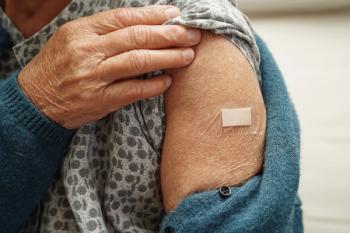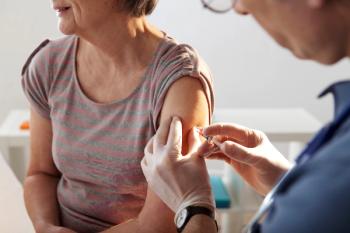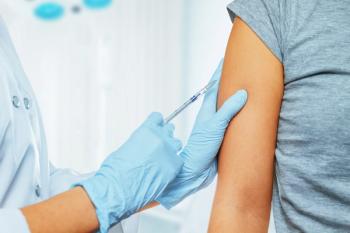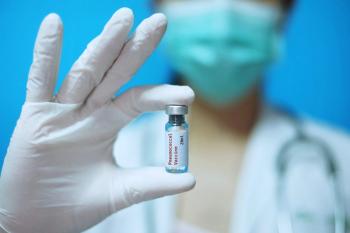
New research findings reveal amoxicillin's effectiveness varies in treating invasive pneumococcal disease, highlighting the importance of patient-specific factors in antibiotic therapy.

New research findings reveal amoxicillin's effectiveness varies in treating invasive pneumococcal disease, highlighting the importance of patient-specific factors in antibiotic therapy.

Older adults are more likely to have chronic diseases, such as lung or heart disease, which makes them more susceptible to invasive pneumococcal disease.

Researchers conducted a retrospective cohort study to understand pneumococcal disease patterns, vaccine coverage, and the overall burden of the disease in adults in France.

Recent data highlight the importance of implementing strategies to improve vaccine uptake.

Researchers determined the impact COVID-19 interventions had on Danish children’s incidence of RSV, influenza, and invasive pneumococcal disease.

Researchers explored the incidence of pneumococcal hemolytic uremic syndrome in children living in Sweden from January 2009 to December 2024.

Researchers conducted a review that provided updated evidence regarding the pneumococcal disease burden, the evolution of pneumococcal vaccines, and the latest immunization strategies.

The Advisory Committee on Immunization Practices voted to lower the pneumococcal recommendation to 50 years in October 2024.

The most common barriers to vaccination included finances, logistics, availability of information, and hesitancy or refusal.

Invasive pneumococcal disease is a cause of morbidity and mortality in the US, despite the availability of vaccination against the disease.

V116 is noninferior to 23-valent pneumococcal polysaccharide vaccine (PPSV23) for all 12 common serotypes and superior to 9 unique serotypes.

Researchers estimate the cost-effectiveness of PCV24 in the older adult population compared with the currently accepted pneumococcal vaccine schedules in the US.

Researchers wanted to better understand prescribing patterns of pneumococcal vaccines for people living with HIV in a tertiary care hospital.

Patients with psychosis, depression, and anxiety exhibit higher rates of vaccine hesitancy.

Vaccination changes serotype distribution from vaccine-type serotypes to nonvaccine-type serotypes.

Investigators specifically analyze information on influenza and pneumococcal vaccinations.

Researchers explore trends from 2014 to 2022 among pediatric invasive pneumococcal diseases since introduction of the 13-valent pneumococcal conjugate vaccine.

Researchers explored the association of a pneumococcal polysaccharide vaccine booster and health care utilization in children with sinusitis and low pneumococcal antibody titers.

Using a cost-utility analysis, researchers addressed the cost-effectiveness of pneumococcal vaccine strategies for adults over the age of 64.

VAX-24 elicited substantial immunoglobulin G (IgG) and opsonophagocytic assay (OPA) immune responses at 1-month after the third dose across all doses studied.

Researchers wanted to understand the distribution of pneumococcal conjugate vaccine serotypes and how they have potential to impact pneumococcal disease severity and burden.

Glucocorticoid use for severe community-acquired pneumonia has been controversial due to the safety profile of these drugs.

Researchers explored the efficacy of a targeted mailing campaign for improving pneumococcal vaccination coverage among adults 65 and over.

Investigators said that targeted education and interventions are key to the long term success of community pharmacy immunization programs.

IQVIA released a report detailing pharmacists’ authority to administer vaccines in the US as well as adults’ overall vaccination rates by state.